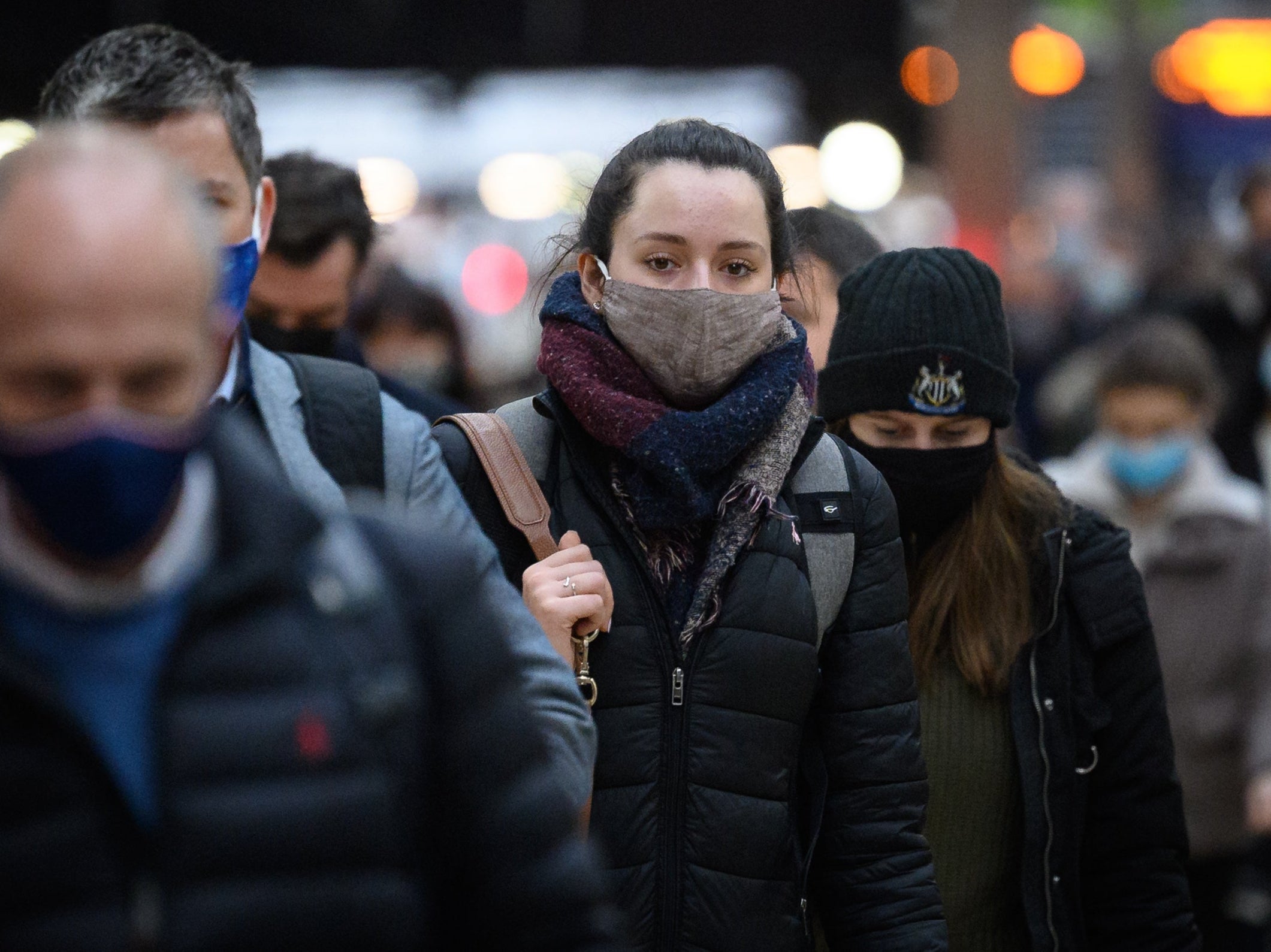Omicron poses clear threat to economy but MPC may feel it has no choice but to hike rates
The new variant may increase inflationary pressures while at the same time impeding economic recovery, leaving Threadneedle Street on the horns of a nasty dilemma

A week is a long time in economics as well as in politics, as recent events have clearly proved. Prior to the omicron variant emerging to chuck a lighted match and petrol on to a tray full of already frayed forecasts, projections and expectations, a rate rise this month seemed like a racing certainty.
Interest-rate hikes are rarely cheered by the business community. But the ground had been prepared, and it had more or less accepted the need for one given the head of steam that prices have been building up. Ditto the City, parts of which expected an increase from the current historic low of 0.1 per cent last time round, and got quite miffed when it didn’t arrive (there was a very obvious failure to read the tea leaves in some very highly paid quarters).
Now, the job of the Bank of England’s Monetary Policy Committee (MPC) has been made a lot harder.
Catherine Mann, a recent addition to the committee, warned on Tuesday that omicron could keep inflation higher for longer, in a speech at an event hosted by Barclays.
Forecasts – them again – for inflation have repeatedly been raised. But Mann was concerned about omicron’s potential to further fire up price rises by causing a fresh set of problems for an already strained global supply chain. She was also worried about the variant hitting the service sector, and the potential for people to shift their spending away from it and towards goods as a result.
Let’s say you cancel the Christmas gathering you’d planned at the local pub and buy pricier gifts instead. If something like that is repeated nationwide, it could add more heat to the inflationary fire.
The speech was taken note of. Mann had been seen as one of the more dovish members of the committee, and was among the seven members who had voted to keep rates on hold at its last meeting.
The case for a rise at the next one was further strengthened by the release of the CIPS UK Manufacturing Purchasing Managers’ Index (PMI) in November, which rose to 58.1 from 57.8 in October.
While it was revised down a smidgeon from the earlier “flash” reading of 58.2, that is still a very robust number (anything above 50 indicates growth).
However, the sting in the tail was its measure of factory costs. These rose to their highest level since records began in 1992, with the troubled global supply chain (there it is again) front and centre.
The problem for the MPC is that omicron clearly has the potential to drive a dagger into the heart of the economy, especially if it forces the government to impose restrictions.
Ministers are currently resisting that, and will probably continue to do so until the very last minute. This would be true to form.
But the Sage (Scientific Advisory Group for Emergencies) committee says they will likely be needed, and it has been on point before.
Here’s the thing: consumers are quite capable of acting independently of the numpties in ministerial office. There is evidence to suggest they took precautions prior to the imposition of previous lockdowns. The same thing may be happening in response to omicron. Some hospitality venues, for example, have reported the cancellation of Christmas parties (see above).
The problem with omicron is that so much is still unknown. That tiresome and vexatious word “uncertainty” will be bolted to it until scientific conclusions can be drawn, and science takes time.
But let’s play the game of conjecture for the moment. Let’s say it’s as bad as Sage fears, and forces the government’s hand again (as it already has on the question of masks), throwing a wrench into the economy in the process.
It could be hello stagflation, with rates rising just as the economy hits the skids and the chancellor is having to borrow more (again) to cushion the blow. Not a happy backdrop for the MPC, which mightn’t have much choice but to act.






Join our commenting forum
Join thought-provoking conversations, follow other Independent readers and see their replies
Comments